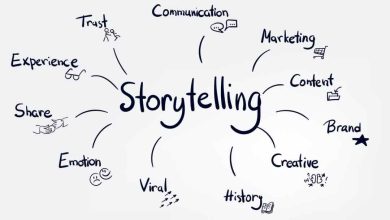Define Your Ideal Customer With These 5 Questions
A practical guide for business owners who want to attract the right customers without getting stuck in analysis paralysis.

One thing you’ve heard over time as a business owner or entrepreneur is to “know your audience,” but what does that mean? By extension, how do you figure it out without burning out in marketing books or second-guessing every detail?
Let’s get down to it. Perhaps there will be many other things to do as you advance in your entrepreneurial journey; however, for now, what you are about to read will help you gain a better understanding of who your ideal customers are. These five questions will help you define your ideal customer in a clear, stress-free, and actionable way.
1. Who Am I Really Trying to Help?
For now, set aside “target demographics” or “audience segmentation” and think human-to-human. Who is that person who actually needs what you’re offering? Are they students looking for who to help with research assignments? Are they a stressed-out single mom looking to save time? A struggling startup founder trying to stand out? Or a young graduate with no clue how to manage money?
If you can’t visualise who your offer is made for, your message will never get to them. Speak to a specific someone, not a general audience.
2. What Problem Is Keeping Them Up at Night?
You may have heard this, but a reminder will not hurt —People don’t buy products or services. If you think your customers are buying from you because of your product or service, you are sitting on a long thing. Instead, they buy solutions to their problems.
They buy the feeling that comes with buying from you as a brand. Moreover, other similar brands are doing what you’re doing, but they still choose to buy from you.
So, ask: What’s frustrating them? What goals are they struggling to reach? What are they secretly Googling at midnight, hoping to solve?
Example: If you sell a budgeting app, your ideal customer isn’t just “anyone with a smartphone.” It might be a 25-year-old new employee scared of mismanaging her first salary. That’s a much better and more relatable focus.
3. Where Are They Already Spending Time?
If you know where they hang out (online or offline), you’ll know where and how to show up correctly.
Are they on Instagram or LinkedIn, or TikTok? Are they attending business meetups, browsing Twitter threads, or constantly on WhatsApp groups?
This tells you where to place your content, ads, and energy. Knowing who your ideal customer is doesn’t require you to be everywhere. Be where your ideal customer already is and show up with helpful content.
4. What Do They Value Most When Making a Buying Decision?
I said this a few paragraphs ago that your customers do not buy your product or service; rather, they buy the feeling that comes with it. What a customer values, however, varies depending on various factors.
Is it price, convenience, speed, quality, trust, or community? This knowledge will help you position your offer in a way that feels like a no-brainer to them.
For instance, if your audience values speed, you should be emphasising fast results, express delivery, or quick wins, not long-term transformation.
5. What Kind of Language Do They Use to Describe Their Needs?
Listen to how your audience talks, not how you talk about your business. Are they saying “I need a better work-life balance” or “I’m always burnt out”? “I want to grow online,” or “I don’t even know where to start on Instagram”?
As a strategy for your business, mirror their words in your messaging. It builds trust faster than any buzzword ever will.
Conclusion
You don’t need a 20-page customer avatar to start attracting the right people. All you need, at least, for a start, is just clarity on who you’re helping, what they need, and where to find them, what they value, and the kind of language they use.
Answer these five questions honestly to define your ideal customer, and you’ll already be miles ahead of most businesses trying to “market to everyone.”
Related Post: Target Audience: How to Find and Speak to the Right People in Business




